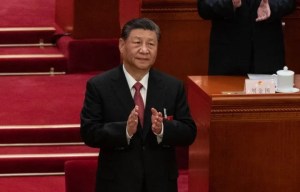Trumpism is, according to its adherents, meant to replace Reaganism, the political doctrine that has dominated the Republican party and the conservative movement since Ronald Reagan left office. Reaganism is identified by a commitment to free market economics, internationalist foreign policy, strong national defense and an open door to immigration.
But then Reaganism and its British version, Thatcherism, have also been associated with an intellectual revolution that swept the West in the 1970s and that was headed by Nobel Prize-winning economists like Friedrich Hayek and Milton Friedman, and driven by think tanks like the Heritage Foundation, the American Enterprise Institute, the Cato Institute and the Center for Policy Studies that transformed the political discourse worldwide. There is no comparable intellectual shift with Trumpism.
Say what you want about the much maligned neoconservatives that helped set the Reaganist policies, but Daniel Bell, James Q. Wilson, Daniel Patrick Moynihan, and Irving Kristol were intellectual giants, who shaped the Western zeitgeist in the second part of the 20th century as they challenged the then traditional liberal thinking about the welfare state and the Cold War.
Trumpism, by contrast, is represented today by loud pundits on right-wing news sites such as Sebastian Gorka. These people are committed to fighting the ‘globalists’, the ‘elites’ and the ‘secularists’ as well as by ‘academics’ like Trump’s economic nationalist guru, Peter Navarro. These scholars have been raised out from obscurity after being portrayed by the media as the ‘brains’ behind the former reality-show host who occupies the White House.
Intent on laying the ground for a new intellectual movement, a group of Trumpists gathered last July at the Ritz Carlton Hotel in Washington DC for the National Conservatism Conference, where they tried to market their new intellectual brand. The idea was to provide an alternative to Reaganism in its neoconservative and libertarian incarnations.
Yet the gathering in Washington merely demonstrated that Trumpism remains inchoate. It is mostly a figment of the imaginations of jobless academics and ex-think tankers pretending to be the voice of a president.
Trump hasn’t been very Trumpist, for one thing. The President who criticized unnecessary military interventions, especially in the Middle East, very nearly went to war with Iran. And while posing as the ally of unemployed blue-collar workers in the Rust Belt. Trump’s only legislative achievement has been a huge cut in the corporate tax rate that has benefited the billionaires who dominate his cabinet.
Trump is basically a political opportunist who has exploited the anti-immigration sentiments in the country by embracing an ‘us vs them’ agenda. Calling Chinese President Xi Jinping his ‘great friend’, he waged a cold war against the Chinese as part of a re-election campaign ploy. He has raged against the social media only to reach a backroom understanding with Facebook’s Mark Zuckerberg.
Bannon, as well as other political figures such as Republican senators Josh Hawley and Tom Cotton, seem to believe that bashing China and attacking Silicon Valley would help them win the political support of members of Trump’s electoral base, as well as mobilize the support of the American people behind nationalist and populist agendas even if Trump loses the election in November.
But these hopes are based on a misreading of the country’s political map. It tends to assume that Trump’s election victory was the result of a political backlash against immigration and trade among unemployed blue-collar workers in Pennsylvania, Michigan and Ohio. It further regards Trump’s election as the start of a grand political realignment, the kind that allowed Richard Nixon and then Ronald Reagan to switch large chunks of the Democratic electorate to the Republican party and win smashing re-elections elections in 1972 and in 1984.
But those re-election victories were a result of major demographic changes, during which many of the traditionally Democratic southern states started to shift their allegiance to the Republican side, as did many of the so-called ‘white ethnics,’ mostly Catholic voters.
[special_offer]
Nothing as momentous happened in 2016. If anything, the electoral power of members of the demographic group that voted for Trump — older white Christians with no college education — is going to diminish in the coming years. African Americans, Hispanic and Asian Americans as well as liberal young voters will determine the outcomes of elections even in what are now red states, like Georgia, Arizona and Texas. Old miners in West Virginia are ‘out’; young urbanites are ‘in’.
In that context, the cultural changes in the country, such as growing secularization and evolving sexual mores and attitudes towards gays, are not favoring the Trumpists who rely on the support of Evangelical Christians and conservative Catholics.
Reaganism thrived on the concept of the big political tent that brought together libertarians, national security hawks, Evangelical Christians, suburbanites, urbanites and residents of rural areas. Trumpism seems to be moving in the other direction, towards building a very small tent of voters. Small tents don’t build global movements.


















